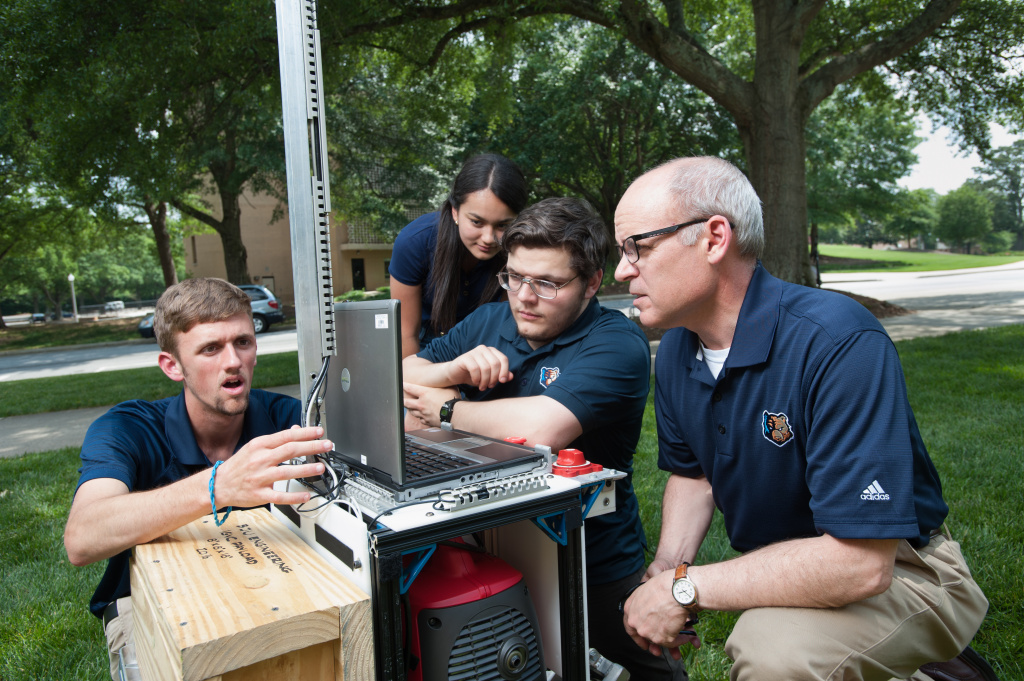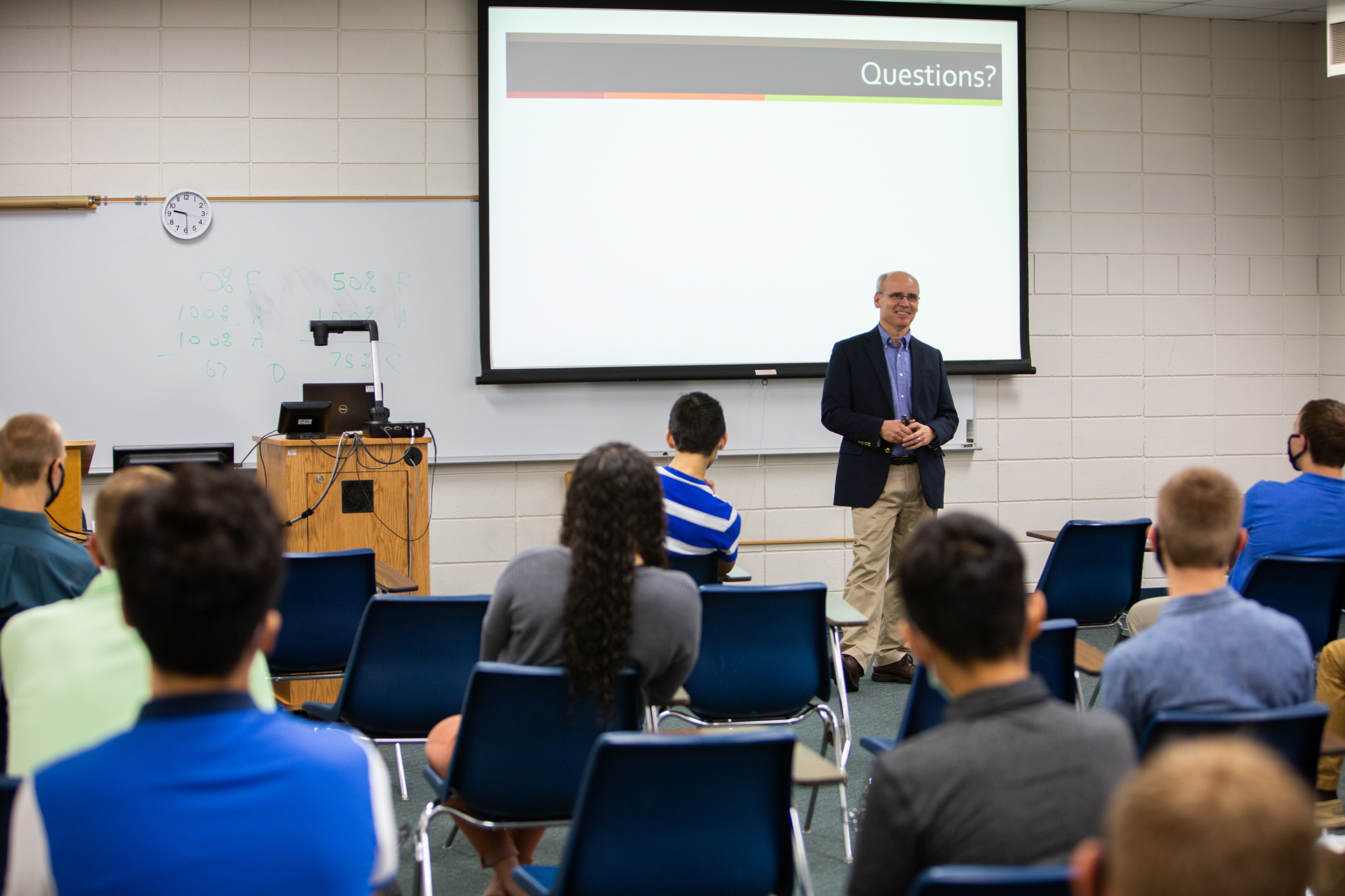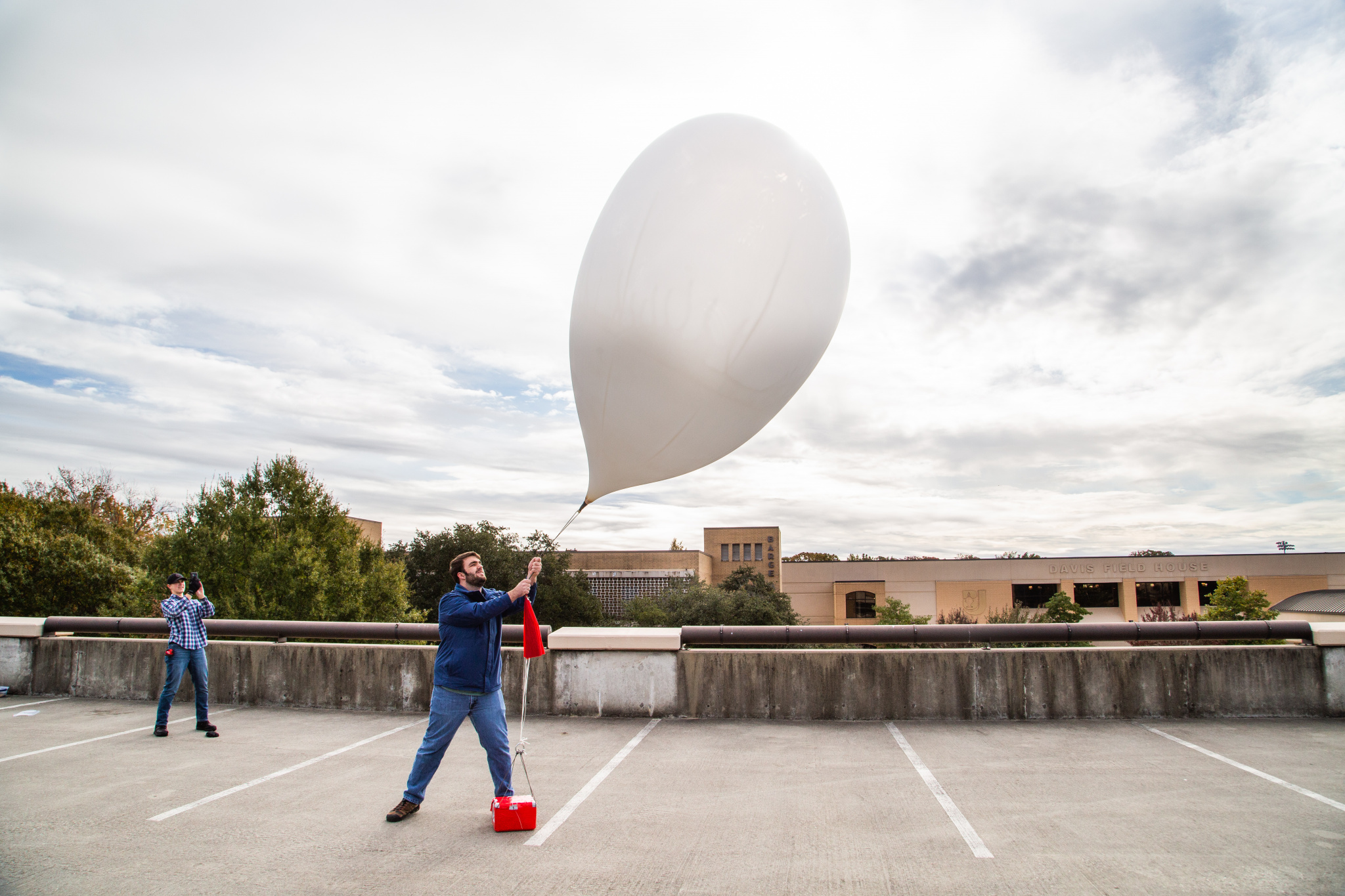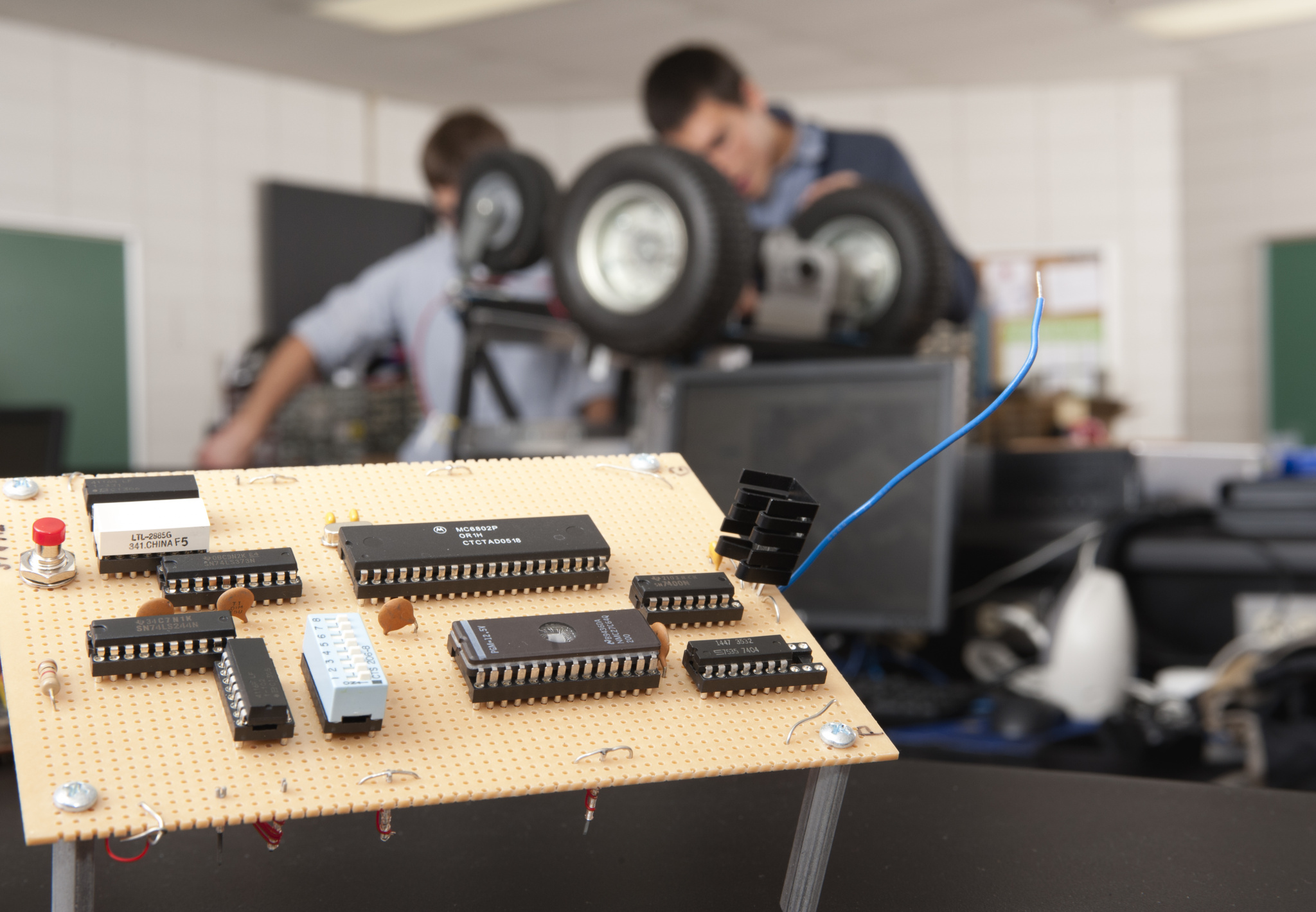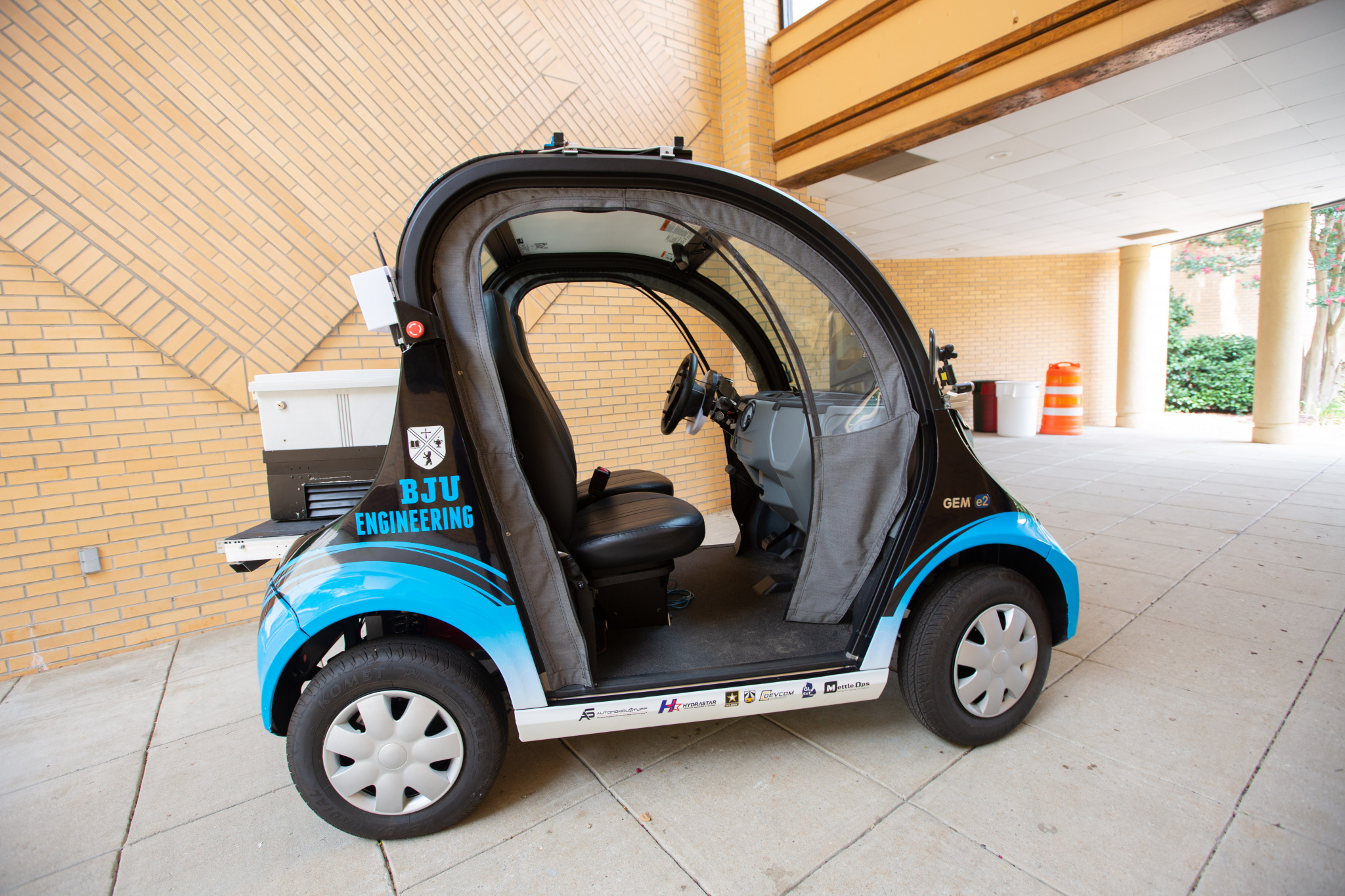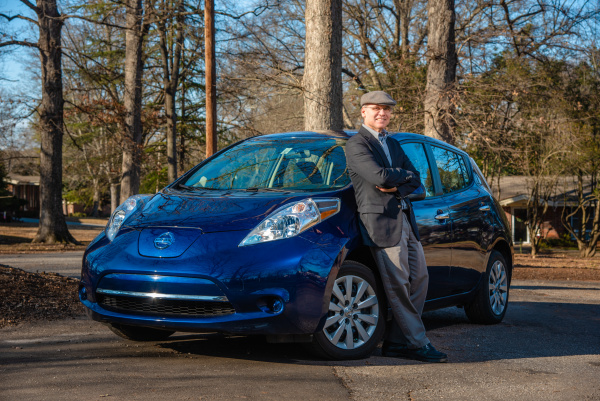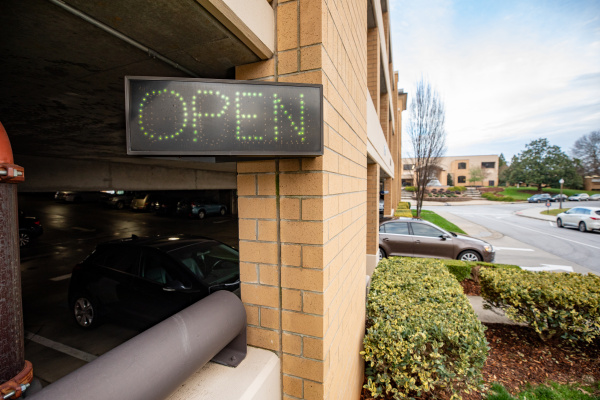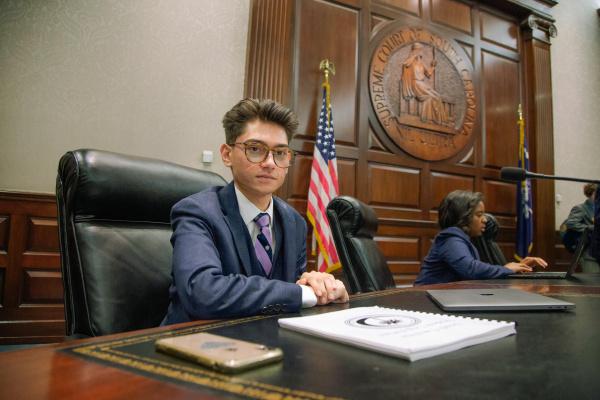The world is full of technical problems in need of practical solutions developed by engineers. Sometimes it’s an invention. Sometimes it’s solving the puzzle of a road system. Whatever form the solution takes, as Department of Engineering head Dr. Bill Lovegrove said, “A good engineer is motivated to want to help people, to want to solve problems. It’s a way to serve people. It’s a way to serve society by being an engineer.”
BJU’s engineering program equips students to solve problems and serve others in the areas of mechanical, civil, electrical and computer engineering.
Is Engineering Right for Me?
If you are a natural problem-solver who enjoys thinking of innovative solutions and you excel in hands-on projects, then your God-given talents and interests might be leading you to a career in engineering.
As you consider this program, heed Lovegrove’s advice: “Is this what God wants you to be? As Christians, I don’t think your major is just something that you choose. It’s something that God calls you to, something that God equips you to.”
Your strengths might also be leading you to this program. As an engineering student, you must have a strong foundation in math and physics. “If you take high school physics and you like it, that’s probably a good sign that you could be an engineer,” Lovegrove said. “What engineers do is they design things. They solve problems. They invent things that solve problems.”
Which Concentration Should I Choose?
As a freshman, you will take Introduction to Engineering, which will explore the design process and common engineering tools. One of the main goals is to help you select a concentration.
“That class will give you a great overview of each concentration. If you come in and you have no idea what concentration is right for you, that class will help,” Lovegrove said. “You will learn about what a job will look like in each field, which will help you visualize if you could see yourself doing that job.”
During the first year, every engineering student takes the same courses. Explore each of the concentrations to decide which would be the best for you. You will not have to make a decision until the beginning of your sophomore year.
“We have four concentrations, but they’re all together in the same program. (Students) are taking many of the core engineering classes together. So, they are learning a lot about the four kinds of engineering, even though their concentration is only in one,” Lovegrove said.
Mechanical Engineering
Mechanical engineering focuses on manufacturing and maintaining machinery. While mechanical engineers primarily work with machines, they are also responsible for researching, designing, developing and building a wide variety of devices.
Electrical Engineering
Electrical engineers design equipment, devices and systems that use electricity, including the electrical systems of cars and aircraft. They also analyze, design and test the manufacturing of electrical equipment.
Computer Engineering
Computer engineers analyze and design computer hardware and software. They also research, design and test computer systems, processors and circuit boards. It is their responsibility to solve problems that occur within a computer’s hardware or software.
Civil Engineering
Civil engineers plan, construct and maintain human-made structures. These engineers design, build and supervise the construction of public spaces. Common projects civil engineers work on include the construction of roads, buildings, bridges and sewage systems.
What Projects Will I Have?
The engineering program is one of the most interactive at BJU. Students apply the skills and principles they are learning to projects in and out of the classroom.
Freshman Stratosphere Balloon Mission
One of the highlights of the freshman year is the stratosphere balloon mission. Every student participates in this project at the end of Introduction to Engineering. This will be your first engineering design experience at BJU.
The class is divided into three teams. One at a time, each team launches a balloon attached to tracking instruments. The teams each have a different goal and must research and design a payload of equipment to track their success.
One of the most interesting aspects of this project is the recovery process of the balloons. Even though each team makes a prediction of where their balloon will land, the results can be surprising. In the past, balloons have landed hundreds of miles away in different parts of South Carolina and North Carolina.
Senior Projects
During their senior year, engineering students work on two real-life application projects. The first is a group project designing and building a robot. The second is a design project of your choice.
The goal of both projects is to help you turn your designs into working prototypes. “One thing that is unique (about this program) is the two senior projects, the personal project and the group project. In most engineering schools, you don’t get to do both. But by doing both, students truly get that extra preparation that will help them in their field,” Lovegrove said.
Are There Any Unique Classrooms?
A majority of an engineering student’s time is spent in the Alumni and science buildings. Many classrooms have built-in labs such as the mechanical maker’s space lab, electronics lab, computer lab, hydraulic engineering lab and a thermal physics lab.
Regardless of your concentration, each lab helps you apply what you are learning through hands-on experiments and projects — as does the engineering program’s welding station and the garage, where most of the robots are built.
“We have several labs and rooms that students enjoy. Those rooms are a big part of engineering, so I’m glad they get to have that experience,” Lovegrove said.
What Extracurriculars Can I be Involved in?
If you want to put the engineering skills you are learning to practice outside of the classroom, BJU has opportunities for involvement.
Professional Organizations
Some faculty of the engineering program are members of the IEEE and encourage students to also get involved. Students benefit from guest speakers, get to know other members and compete in IEEE competitions. Some students have gone on to place as high as second place in the national competitions.
See Also: Team Excels While Debugging Isolation and Distancing
Robotics Team
Many engineering students are interested in robotics because it gives them an opportunity to execute their designs and demonstrate their engineering skills. Students who want to be a part of a robotics team can join BJU’s volunteer robotics team.
Throughout the year, the team works on autonomous vehicles. They have received a grant from the U.S. Department of Defense, which has allowed them to work on several vehicles for the past three years. Recently, they won second place in the 28th annual Intelligent Ground Vehicle Competition with Bruin-3, their latest autonomous vehicle.
See Also: BJU Places Second at 2021 IGVC
Electives
The engineering program requires more credits than most programs, so students don’t have the opportunity to take many elective courses. Some students take summer classes to make room for electives in math, computer science or other concentrations.
While many students choose to take electives that relate to engineering, others choose to take courses in subjects like art and music. “I encourage that because I think part of the idea of Bob Jones University is to make you a well-rounded person and develop you as a whole person. So, having an interest outside of engineering, math and science is a good thing,” Lovegrove said.
Do I Have to Take Any Certification Exams?
All engineers must take the Fundamentals of Engineering exam in order to obtain an engineering license. Graduates from BJU’s program have a 90% success rate. Lovegrove credits the high level of success to the structure of the program.
“The major way that you prepare is your engineering classes are preparing you for the test all the way along the program,” he said. “We also have a seminar for the seniors to help them get ready for the test.”
What Can I Do After Graduation?
Though classes prepare you for the exam, they are ultimately preparing you for your career. “Most of our students are looking for engineering jobs. So, in that regard, the engineering program is a professional program,” Lovegrove said. “We are preparing you for a particular career to be an engineer.”
Upon graduation, you will be ready to enter the workforce at the entry level, or you may continue on to graduate school. Graduates from BJU have been accepted to some of the top engineering schools in the region.
Whichever you choose, the goal is to be the best engineer you can be so you can serve to the best of your ability.
For more information or to apply online, visit BJU’s engineering program page.


